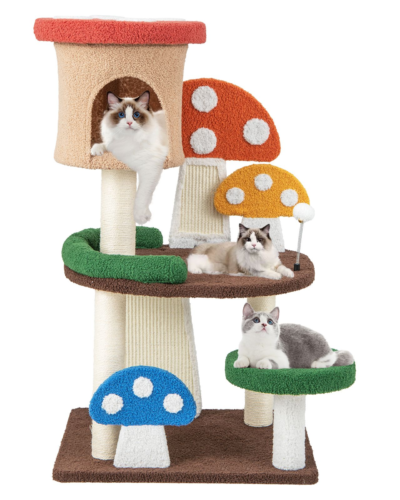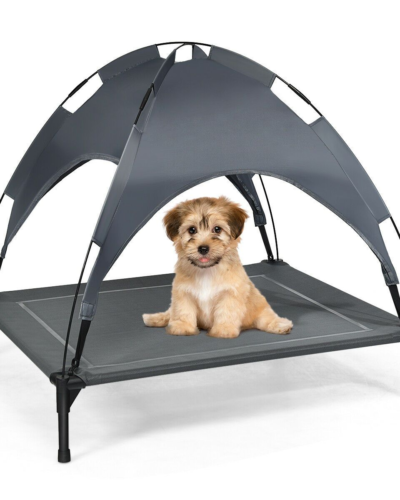Choosing the best dog for your lifestyle can be a daunting task, especially with the myriad of breeds available. Understanding different dog breeds and their characteristics is crucial in ensuring a harmonious relationship between you and your future pet. This comprehensive guide will help you navigate through various options, providing insights into popular breeds, their needs, and suitability to different environments. Whether you’re looking for a small companion for city living or an energetic friend for outdoor adventures, selecting the right dog breed is a decision that requires thoughtful consideration of your lifestyle and expectations. Let’s delve into the world of dogs and explore the amazing breeds out there!
Understanding Your Lifestyle Needs
Choosing a dog that matches your lifestyle is crucial for a harmonious relationship. Consider your daily routine: Are you someone who’s home most of the day, or are you away for working hours? Activity levels matter too. Certain breeds might need more exercise, while others are comfortable with a leisurely stroll.
Assessing your home environment is also essential. Do you live in a spacious house, or is it a cosy apartment? Space availability can significantly influence the type of breed you should consider. Dogs need room to move around, but some manage better even in small spaces.
Financial aspects are often overlooked, yet they play a significant role. Evaluate any extra costs like grooming, food, and veterinary bills. Some breeds require more frequent grooming or specialised diets. Set a budget to manage these ongoing expenses.
Finally, ponder over your social life. If you entertain often or travel regularly, you’ll need a breed that fits these habits. Some breeds are more independent and manage well while you’re away, while others are more social and enjoy a lively home environment.
Exploring Popular Breeds
When it comes to picking the right breed to fit into your lifestyle, understanding the diverse characteristics of popular breeds can be incredibly helpful. Let’s explore some well-loved options and what makes each unique.
Labrador Retrievers are a top choice for many families. Known for their friendly and outgoing nature, they are fantastic companions for both children and adults. They are active dogs that benefit from regular exercise, so consider them if you have a large yard or enjoy outdoor activities.
For those living in smaller spaces Poodles, particularly the Toy or Miniature variations, make for smart and versatile pets. They are highly trainable and their three sizes—Toy, Miniature, and Standard—provide options for different living situations.
French Bulldogs are another excellent breed, especially for city dwellers. With their compact size and moderate energy levels, they adapt well to apartment living while still being playful and affectionate.
If you’re looking for an outdoor companion with more energy, the Border Collie is perfect for active owners ready to engage in lots of physical activity. They thrive with challenging tasks and plenty of mental stimulation.
Some prefer breeds with a reputation for being especially gentle and patient, such as the Golden Retriever. Their gentle temperament and adaptability make them a favourite among households with children.
Considering a less experienced dog owner, breeds like Beagles can be a good match. They are curious, friendly, and straightforward to care for, with a manageable size for many living situations.
Lastly, it’s beneficial to look at the individual characteristics of mixed breeds too. These can often combine the best traits of multiple breeds, offering a unique blend of behaviours and physical features.
Small Breeds for City Living
Living in the city often means limited space, making small dog breeds a popular choice for urban dwellers. These compact companions are not just space savers but often come with personalities perfect for the bustling city life.
Smaller breeds such as the French Bulldog, known for its playful yet calm nature, and the Cavalier King Charles Spaniel, renowned for being gentle and affectionate, are excellent options for city living. Their size allows them to adapt to apartments effortlessly, and they usually require less exercise compared to larger breeds. However, it is still crucial to meet their basic physical and mental stimulation needs.
Exercise Needs and Adaptability
While most small breeds thrive in urban settings, it’s important to understand their individual activity levels. For instance, the Pug is a laid-back breed that enjoys short walks, making it ideal for someone with a busy city schedule. On the other hand, the Miniature Schnauzer is more energetic and would appreciate regular playtime or trips to a local dog park.
Noise Levels and Temperament
Noise sensitivity should also be considered, as some small breeds, like the Chihuahua, may be more prone to barking at unfamiliar sounds common in city environments. Breeds like the Shih Tzu often exhibit a more relaxed demeanor, making them suitable for apartment living where neighbours are in close proximity.
Regardless of choice, understanding how these small breeds adapt to urban settings is pivotal. Potential owners should evaluate proximity to pet-friendly areas and access to veterinary services, ensuring a happy and healthy life for their pet in the city.
Active Breeds for Outdoorsy People
Energetic Companions for Active Adventures
For those with a penchant for outdoor activities such as hiking, running, or cycling, selecting a dog breed with similar vigor and enthusiasm is crucial. Active breeds thrive with plenty of exercises and excel in environments where they can explore and expend their high levels of energy. They are not only great partners for adventurous exploits but often possess traits of intelligence and agility, making them suitable for dog sports and advanced training.
Breeds like the Border Collie, Australian Shepherd, and Labrador Retriever are renowned for their stamina and love for physical challenges. Border Collies are particularly known for their agility and quick learning abilities, making them exceptional in herding and agility sports. Australian Shepherds, with their innate herding instincts, are both intelligent and active, suited to various terrains and challenges.
Labrador Retrievers, besides being athletic, are excellent swimmers. Their friendly disposition makes them perfect companions for families who cherish outdoor life. If water-based activities, such as boating or swimming, are part of your recreational agenda, a Labrador is more than apt to dive into such adventures.
The need for mental stimulation in these breeds should not be overlooked; they require games, puzzles, or training exercises to satisfy their cognitive cravings. An unstimulated active dog might channel its excess energy into undesirable behaviours.
Weather tolerance is another consideration. Breeds like the Siberian Husky or Alaskan Malamute, with their thick coats, are perfect for snowy adventures, whereas those with lighter coats, such as the Weimaraner, fare better in milder climates.
Family-Friendly Breeds
When considering a new pet, particularly if you have children, choosing a family-friendly dog breed is essential. These breeds are typically known for their gentle nature, patience, and ability to form strong bonds with family members of all ages.
Labrador Retrievers
Labrador Retrievers often top the list of family-friendly breeds. Known for their friendly disposition and eagerness to please, these dogs are both intelligent and easy to train. They enjoy being part of family activities and offer companionship without being overly demanding.
Golden Retrievers
Golden Retrievers are another popular choice. Their calm demeanour and loyalty make them perfect companions for families. These dogs are gentle and often enjoy playing games, but they are also adaptable to relaxed home environments.
Beagles
Beagles offer smaller size and charm, which is often appealing for families. They are usually sociable and cheerful, thriving in active households. While Beagles are energetic, their friendly and curious nature makes them excellent companions for children.
Cavalier King Charles Spaniel
The Cavalier King Charles Spaniel is an affectionate and friendly breed known for their love of cuddles. They suit family settings because of their playful yet gentle character, providing a calming presence.
Boxers
Boxers are playful and energetic, making them great for active families. They tend to be protective yet friendly, striking a good balance between a playful pet and a reliable guardian.
Choosing a breed that matches your family’s lifestyle can enrich your home and create lasting bonds. These breeds have been renowned for their family-friendly traits, making them brilliant choices for those with children.
Dogs for Beginners
Choosing the right dog breed as a beginner can be a thrilling yet daunting task. With so many breeds to consider, it is crucial to select one that aligns well with your experience level and ability to provide care. Some breeds are more forgiving to novice mistakes and adapts easily to different living conditions.
Cavalier King Charles Spaniel is often recommended for beginners due to their gentle and affectionate nature. They are small, easy to train, and love companionship. If grooming is a concern, Pugs are another delightful choice. These cheerful little dogs have short coats that require minimal maintenance, making them perfect for someone just starting.
For those who might be interested in slightly larger breeds, Labradors are known for their friendly disposition and intelligence. They are straightforward to train and generally good-natured, although they do require regular exercise. Beagles are another option; playful and sociable, they do well with families or someone who enjoys engaging with their pet.
Training and Socialisation
When selecting a breed, consider how much time you can dedicate to training and socialisation. Breeds like Cocker Spaniels and Shih Tzus may need more time, but they typically respond well to consistent teaching methods. Start with basic commands and gradually introduce them to new environments and situations.
Whether you opt for a calm, independent breed or a more energetic one, remember that ongoing training and love are the keys to building a strong bond with your new four-legged friend. Understanding their behaviours and needs will result in a fulfilling experience for both of you.
Decoding Breed Characteristics
When selecting a dog breed for your lifestyle, understanding specific breed characteristics is essential. Each breed comes from a different lineage of work and temperament, which can greatly affect compatibility with your lifestyle.
Physical Traits are one of the easiest observable breed characteristics. This includes size, coat type, and even the structure of the breed. Larger breeds may require more space, while smaller breeds might be suitable for apartment living. Additionally, some breeds have a short coat requiring minimal grooming, whereas others might have a long, fluffy fur demanding regular maintenance.
Temperament varies significantly among breeds. Some breeds are known for their independence, while others thrive on companionship and may suffer from separation anxiety if left alone for long periods. Understanding breed temperament can help ensure that the dog’s natural behaviour aligns with your living situation or family dynamics.
Consider the breed’s energy levels, as high-energy breeds such as Border Collies might require extensive daily exercise, making them suitable for active individuals or families with a garden. Conversely, breeds with lower energy levels can adapt well to a more sedentary lifestyle.
Another critical aspect is the breed’s trainability. Certain breeds are renowned for their intelligence and eagerness to learn, which makes them more straightforward to train. However, some intelligent breeds can become bored easily if not mentally stimulated.
Lastly, social traits should not be overlooked. Some dogs are natural guardians, being protective and wary of strangers, while others are more sociable and friendly. This characteristic is vital if you have frequent visitors or live in a neighbourhood with many other pets.
Understanding these breed characteristics can serve as a guide to making a well-informed decision while choosing a dog breed that will harmoniously fit into your lifestyle.
 Mushroom Cat Tree Tower with Natural Sisal Posts
2 × 77.97 £
Mushroom Cat Tree Tower with Natural Sisal Posts
2 × 77.97 £  Smart Cat Toys Automatic Feather 2 in 1
1 × 37.98 £
Smart Cat Toys Automatic Feather 2 in 1
1 × 37.98 £  Elevated Pet Bed with Removable Canopy
1 × 42.59 £
Elevated Pet Bed with Removable Canopy
1 × 42.59 £  Rechargeable Motion-Activated Cat/Dog Laser Toy
1 × 18.66 £
Rechargeable Motion-Activated Cat/Dog Laser Toy
1 × 18.66 £  Pet Hair Dryer with Negative Ion Technology
1 × 84.37 £
Pet Hair Dryer with Negative Ion Technology
1 × 84.37 £  Smart Sensing Interactive Snake Cat Toy
1 × 15.98 £
Smart Sensing Interactive Snake Cat Toy
1 × 15.98 £ 











